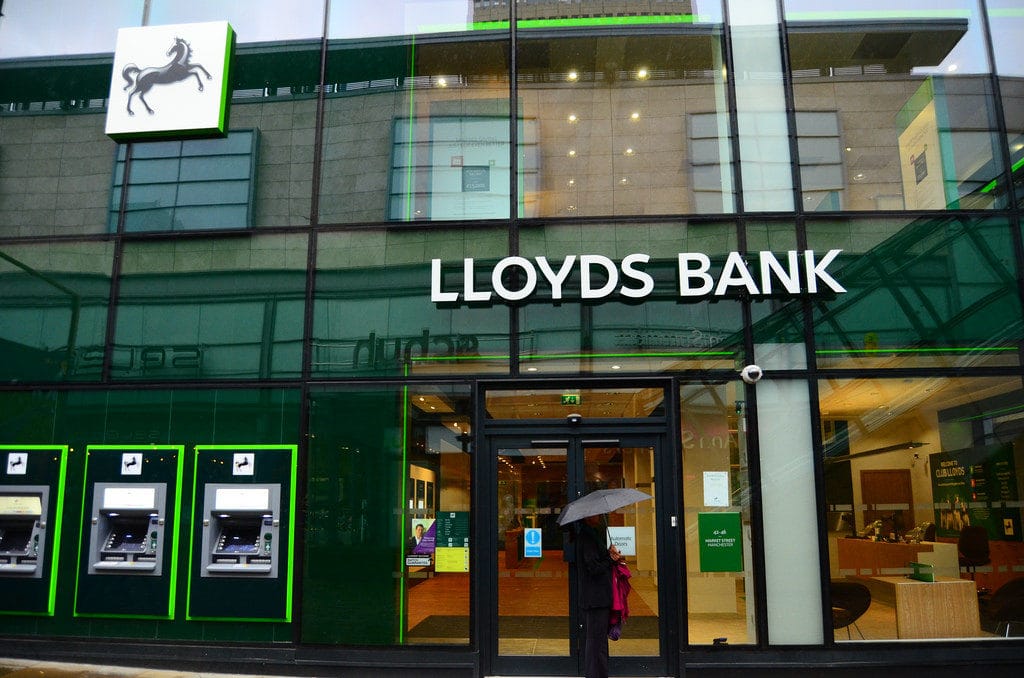Key points:
- A standard analysis says that banks benefit from rising interest rates
- UK interest rates are definitely rising so Lloyds should benefit
- Will this feed through to the Lloyds share price?
- Lloyds Bank Up 45% – But It’s Not The Shares
Lloyds Banking Group (LON: LLOY) shares should, in theory, benefit from rising interest rates. This is just the way that standard banking works. The big question is whether this will actually happen as UK interest rates rise and so feed through into the Lloyds share price.
There was that incident where the Lloyds share price jumped 45% in a day – but that was a technical issue with a preference stock. We’ve also noted that Lloyds Bank, in common with the other domestic banks like HSBC, Barclays, RBS, should benefit from rising interest rates. So, it is going to happen?

Also Read: Which Banks Benefit From Rising Interest Rates Not Passed On To Savers?
The rising interest rates seem to be here. The general market view is that the Bank of England is going to do a back-to-back rate rise at this next meeting on Thursday. Prices for gilts and futures in fact indicate a near 100% certainty in the belief that rates will rise again. The current inflation rate, well over 5% and very much more than merely transitory makes this, the market feels, a dead cert.
True, a rise to 0.5% for base rates doesn’t make all that much difference to the finances of the banks but it is a good indicator of the direction of travel. A continuation of such rises to historical averages of 3 and 4% would transform the prospects for banking shares like Lloyds.
The reason is that banks live off their margin. The particular level of interest rates isn’t really the point. For a bank borrows from depositors at one rate, lends out to borrowers at another. OK – it’s the gap between those two rates (minus defaults of course) that is the bank’s income and so, after costs, determines what profits will be.
However, as interest rates are compressed, as they have been this past decade, this does then matter. For charging depositors negative rates doesn’t really work – even though the ECB has tried it. Pushing down lending rates thus compresses the bank margin and so depresses profits.
It is also true that a retail bank like Lloyds has a substantial float. This is the money that flows through our current accounts and never does get anything more than the most nominal interest, if even that. While any one current account might only have a flow through it from the bank’s point of view – they have millions of such accounts – that’s a vast deposit base they pay nothing for but which can be lent out at interest. Rate compression significantly reduces that profit.
This process goes into reverse as interest rates rise again. Margins expand so we would expect the profits from retail banking to significantly increase. Of the British banks, Lloyds is the one most exposed to, concentrated upon, exactly that form of retail banking. So, rising interest rates should see outperformance in Lloyds Bank shares.
Or so goes the theory and there’s reasonable empirical evidence that it has happened in the past. The big trading question becomes, of course, will history repeat itself? Or is it all different this time?
